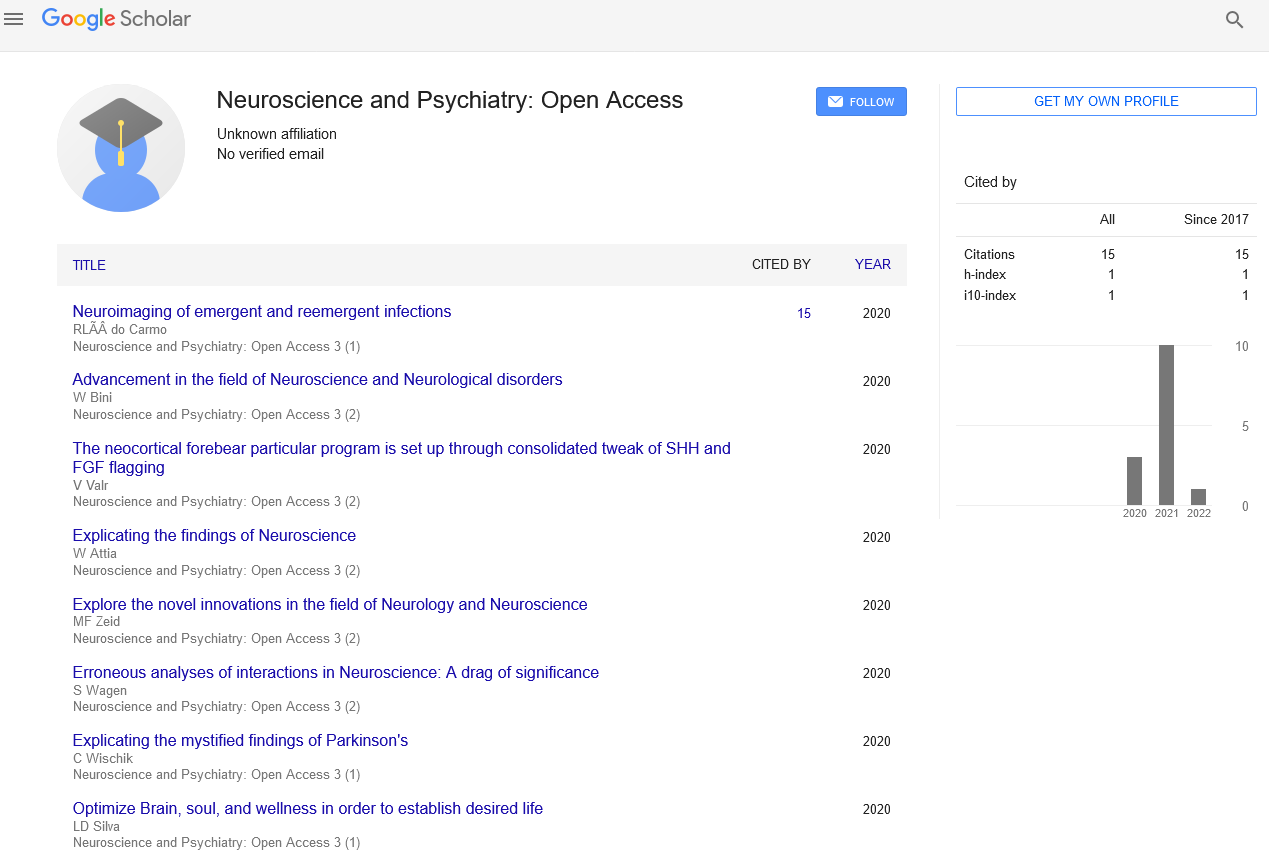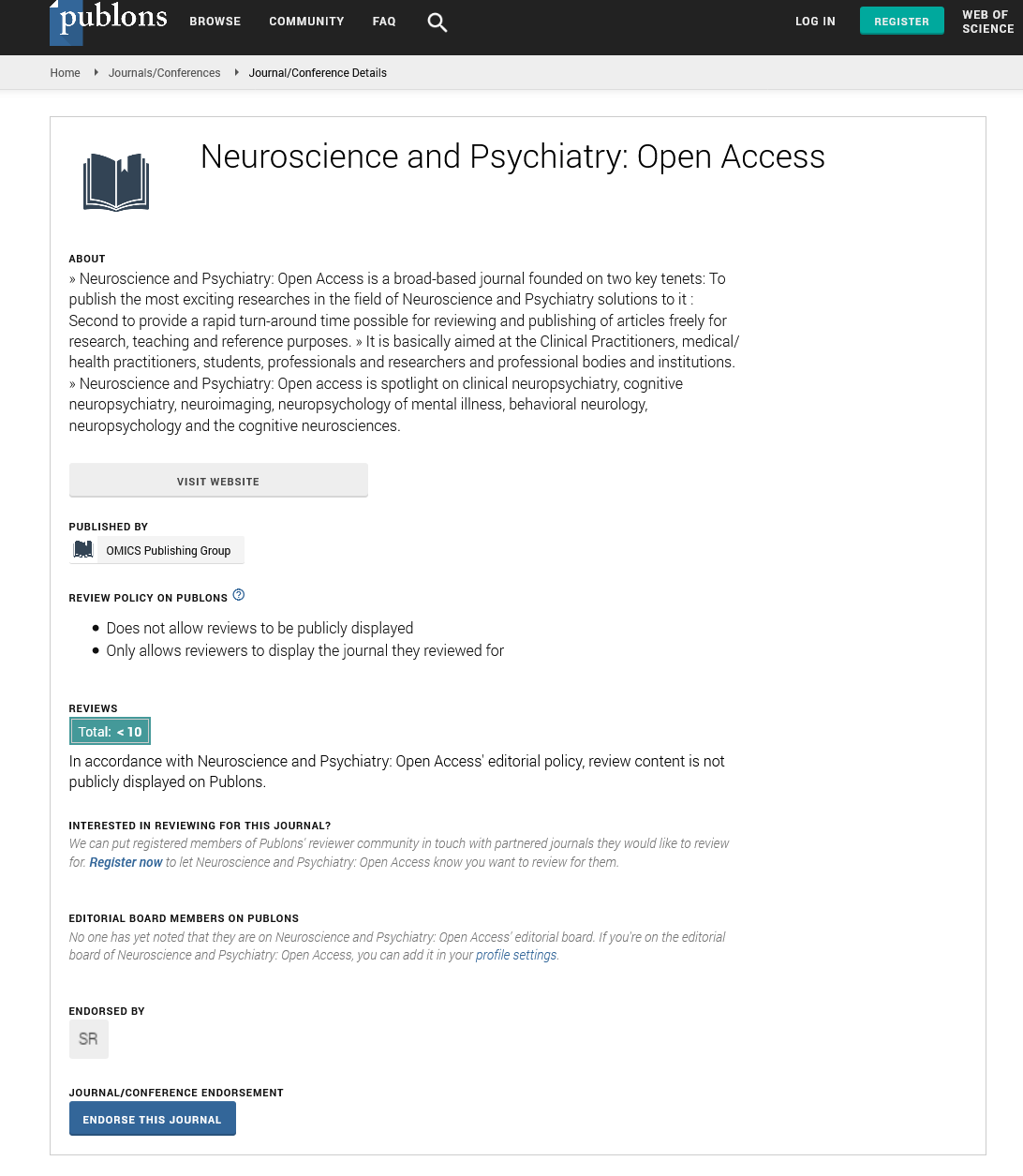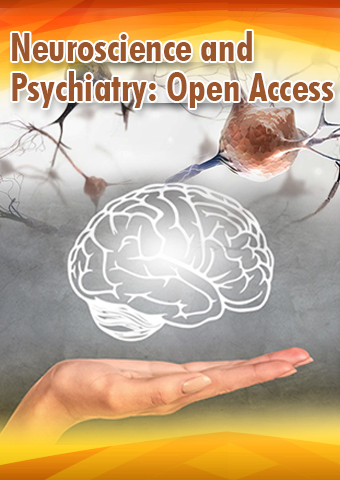Perspective - Neuroscience and Psychiatry: Open Access (2024) Volume 7, Issue 4
Cultural Contexts in Psychiatry: Navigating Cross-Cultural Perspectives for Mental Health
- Corresponding Author:
- Devendra Shekhawat
Department of Psychiatry and Behavioral Sciences, Stanford University, California, USA
E-mail: dev.pgim3@gmail.com
Received: 18-06-2024, Manuscript No. NPOA-24-133873; Editor assigned: 21-06-2024, PreQC No. NPOA-24-133873 (PQ); Reviewed: 05-07-2024, QC No. NPOA-24-133873; Revised: 15-07-2024, Manuscript No. NPOA-24-133873 (R); Published: 22-07-2024, DOI: 10.47532/npoa.2024.7(4).230-231
Introduction
Cross-cultural psychiatry bridges the intricate interplay between culture, diversity, and mental health, recognizing the profound impact of sociocultural factors on psychological well-being, illness perceptions, help-seeking behaviors, and treatment outcomes. In this comprehensive exploration, we delve into the complexities of cross-cultural psychiatry, unraveling cultural influences on mental health, cultural competence in clinical practice, challenges in multicultural assessments, and pathways for culturally responsive care within the realms of neuroscience and psychiatry.
Description
Understanding cultural influences on mental health
Cultural contexts profoundly shape individuals’ perceptions, expressions, and experiences of mental health and illness. Cultural norms, beliefs, values, family dynamics, language, spirituality, and social determinants of health influence how mental health conditions are understood, expressed, and addressed within diverse communities.
Cultural idioms of distress, such as somatization, spiritual attributions, and collective coping mechanisms, vary across cultures and impact symptom presentations, help-seeking behaviors, and treatment preferences. Cultural syndromes, such as taijin kyofusho in Japan or ataques de nervios in Hispanic cultures, reflect culturally specific expressions of distress and cultural constructs of mental illness.
Cultural competence in clinical practice
Cultural competence in psychiatry entails an understanding of cultural diversity, humility, selfawareness, and the ability to navigate cultural nuances in clinical encounters. Culturally competent care involves acknowledging patients’ cultural backgrounds, beliefs, and values, fostering trust, rapport, and therapeutic alliance, and tailoring interventions to align with patients’ cultural preferences and strengths.
Cultural Formulation Interviews (CFI), cultural competence training, and cultural humility frameworks enhance clinicians’ cultural awareness, sensitivity, and communication skills when working with diverse populations. Collaborative approaches, interdisciplinary consultations, and community partnerships facilitate culturally responsive care, reduce treatment disparities, and promote equity in mental health services.
Challenges in multicultural assessments
Multicultural assessments in psychiatry require sensitivity to cultural variations in symptom expression, diagnostic frameworks, and assessment tools. Standardized assessment measures may lack cross-cultural validity and reliability, leading to misdiagnosis, underdiagnosis, or cultural biases in clinical evaluations.
Cultural adaptation of assessment instruments, linguistic competency, interpreter services, and cultural consultation teams enhance the validity and cultural relevance of psychiatric assessments. Culturally sensitive interviewing techniques, open-ended questions, and eliciting patients’ explanatory models of illness facilitate culturally informed assessments and treatment planning.
Pathways for culturally responsive care
Culturally responsive care in psychiatry integrates cultural competence, evidence-based practices, and patient-centered approaches to address mental health needs within diverse populations. Culturally adapted interventions, psychoeducation materials, and outreach programs promote mental health literacy, reduce stigma, and increase help-seeking behaviors in culturally diverse communities.
Culturally competent psychotherapy modalities, such as narrative therapy, mindfulness-based interventions, and culturally specific interventions (e.g., hikikomori support groups in Japan, family interventions in collectivist cultures), align with patients’ cultural values, beliefs, and healing traditions. Integrative approaches, combining Western psychiatry with traditional healing practices, indigenous knowledge systems, and community resources, foster holistic care and cultural continuity in mental health services.
Cultural considerations in treatment outcomes
Cultural considerations influence treatment engagement, adherence, and outcomes in psychiatric care. Cultural mistrust, language barriers, immigration stressors, acculturation challenges, and stigma impact patients’ access to mental health services, treatment engagement, and treatment response.
Culturally tailored interventions, patient education materials in multiple languages, culturally competent mental health providers, and community-based outreach initiatives address cultural barriers and enhance treatment engagement. Collaborative decision-making, shared decision-making models, and patient-centered care plans accommodate patients’ cultural preferences, values, and treatment goals, promoting treatment adherence and positive outcomes.
Future directions in cross-cultural psychiatry
The future of cross-cultural psychiatry embraces diversity, inclusivity, and equity in mental health care. Culturally informed research methodologies, community-based participatory research, and qualitative approaches illuminate cultural factors influencing mental health disparities, resilience, and recovery trajectories.
Advancements in digital health technologies, telepsychiatry platforms, and mobile mental health apps facilitate culturally sensitive assessments, interventions, and support services for underserved and marginalized populations. Interdisciplinary collaborations, cultural competence training programs, and global mental health initiatives promote cross-cultural dialogue, knowledge exchange, and best practices in culturally responsive psychiatry.
Conclusion
In conclusion, cross-cultural psychiatry celebrates diversity, acknowledges cultural contexts, and advocates for culturally responsive care that honors patients’ identities, experiences, and healing journeys. By navigating cultural nuances, promoting cultural competence, and fostering inclusive practices, neuroscience and psychiatry converge to promote equity, reduce disparities, and enhance mental health outcomes for individuals and communities worldwide.
As we embrace the richness of cultural diversity in mental health, interdisciplinary collaborations, cultural humility frameworks, and culturally informed policies pave the way for transformative change, social justice, and empowerment in mental health care.


